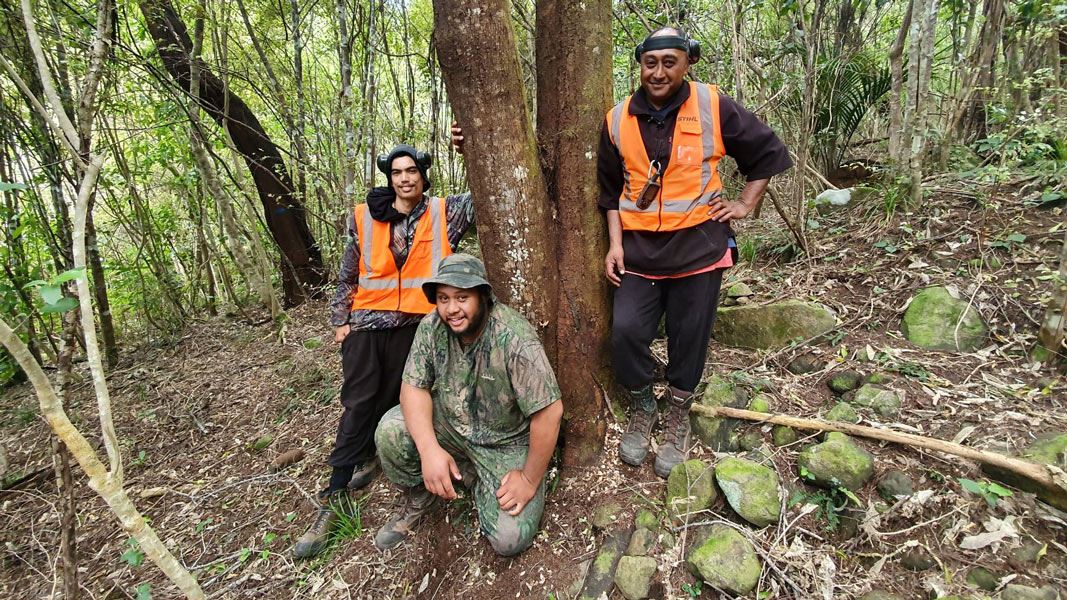Archived content: This media release was accurate on the date of publication.
Date: 17 November 2020
The Department of Conservation (DOC) has been working with Ngāti Kahu ki Whangaroa to provide employment to people who lost work due to COVID-19. Their employment is part of the Jobs for Nature job redeployment, which aims to create 6,000 nature-based jobs over a four year period.
The investment was an opportunity to do some control work on invasive and destructive wilding pines on the conservation land adjoining the Whangaroa harbour. The pines are overtopping native vegetation and are impacting on views of the picturesque harbour.
"Wilding pines are often thought of as South Island or volcanic plateau issue, but they are also a major problem in Northland particularly in coastal areas. These pines are in a delicate coastal environment that is recovering from years of fire and stock grazing, which is also impacting on the recovery. This work is a major boost to the ongoing regeneration of the ngahere," says DOC Ranger Dan O'Halloran.
"We worked closed with treaty partners Ngāti Kahu ki Whangaroa who suggested we could employ the Te Komanga Marae Trust's team who had been working on the nearby Kowhairoa peninsula Historic Reserve."
"The team of four had been carrying out weed and pest control and cutting tracks on the peninsula before the work was curtailed by COVID-19. The crew had a proven work record, were already skilled in traversing the challenging coastal landscape and had all the necessary Health and Safety, First Aid, and herbicide competencies to be qualify as shovel ready or in this case 'drill ready'."
"Jobs for Nature has meant the team were able to begin work in June using petrol driven drills and drench guns to apply herbicide to the pines, in a process known as "drill and fill". To date the team have treated and mapped over 3500 pines spread over nearly 300 hectares. They are now doing follow up work, picking up on any trees not treated initially and also controlling a number of wilding eucalypts and wattles. This process means less destructive impact on the native trees nearby and speeds the healing process."
"As part of the package, the team also received chainsaw training which will be an advantage for future field work. This is a great example of iwi and government working together to enhance the ngahere and benefit the community," says Dan.
While this work has been happening, the Te Komanga Marae Trust have received $1.54 million funding as part of Te Uru Rakau's One Billion Trees programme. This will enable them to develop an on-growing nursery to harden seedlings, prior to the planting of approximately 135,000 long growth native trees to enrich Kowhairoa peninsula.
Background information
The Government's Jobs for Nature programme is a $1.245 billion investment in the creation of 11,000 nature-based jobs. As a part of this programme, the Department of Conservation will allocate $500 million to projects that will create 6,000 nature-based jobs over a four-year period.
